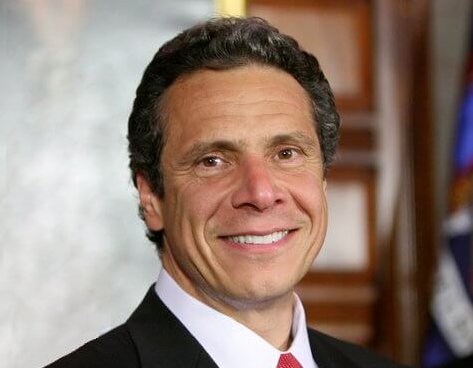Gov. Andrew M. Cuomo, D-N.Y., has announced that more than $20 million is available for a diesel truck and bus replacement program.
The funding comprises $9 million from the state’s $127.7 million portion of the federal Volkswagen settlement and the New York State Department of Transportation’s (DOT) allocation of approximately $11 million in federal funds.
This renewal of the New York Truck Voucher Incentive Program (NYTVIP) complements Clean Transportation NY, an initiative developed at the governor’s direction by the state’s Department of Environmental Conservation (DEC), in concert with the New York State Energy Research and Development Authority (NYSERDA), the New York Power Authority (NYPA), the DOT, the Port Authority of New York and New Jersey, and others.
NYTVIP provides vouchers to fleets across New York that purchase or lease all-electric, plug-in hybrid electric, conventional hybrid electric, compressed natural gas, or propane autogas medium- and heavy-duty vehicles and scrap a similar older diesel vehicle that is part of their fleet. Voucher amounts are based on a percentage of the incremental cost of the vehicle, which is the difference in cost between the alternative fuel vehicle and a comparable diesel vehicle, up to a per-vehicle cap. Voucher amounts may differ by vehicle technology, vehicle weight class and location.
The state’s strategically leveraged investment of settlement funds is anticipated to result in at least $300 million of clean vehicles and infrastructure on New York’s roadways. NYPA is also working with the DEC to use additional VW settlement funds to support electric vehicle charging stations at several upstate transit bus depots. NYPA is deploying a fast-charging network across the state through its EVolveNY program.
The program will continue to be administered by NYSERDA as part of a partnership with the DOT and DEC. The new funding will build on the successes achieved through previous funding, which was available from 2014 through 2018 and provided incentives for the purchase of more than 600 new medium- and heavy-duty alternative fuel trucks, including 65 all-electric trucks and buses. DEC and NYSERDA are also developing additional NYTVIP components to provide additional funding for other vehicle categories (e.g., all-electric transit buses, all-electric school buses and all-electric cargo handling equipment) consistent with Clean Transportation NY. In addition, another $11 million from the Volkswagen settlement will be made available in the future for additional investments in cleaner trucks.
“New York continues to lead the nation in implementing effective policies that prevent the harmful effects of air pollution and climate change by moving away from the dirty fossil fuels of the past to cleaner energy sources of the future,” Cuomo says. “With this investment from the Volkswagen settlement funds and federal money to support cleaner transportation options, we are removing vehicles that significantly contribute harmful emissions, allowing New York to make great progress toward achieving our goals for a healthier environment and stronger clean energy economy.”






Cuomo still does not understand… Compressed Natural Gas and Propane are still fossil fuels and produce Carbon Dioxide. Change that well intended law.
It’s too bad that NYSERDA and Gov. Cuomo think they know best what the trucking industry wants — by funding fuels and technologies that are in some cases not available and not what truckers want. Imagine the clean air and GHG reduction benefits of accelerating the turnover of the oldest diesel trucks to a near-zero emissions fleet; one that includes today’s generation of diesel — the fuel that powers over 90 percent of commercial vehicles today. The newest-generation diesel is near-zero emissions for both NOx and PM, and more fuel efficient than previous generations. These limited taxpayer dollars could have… Read more »